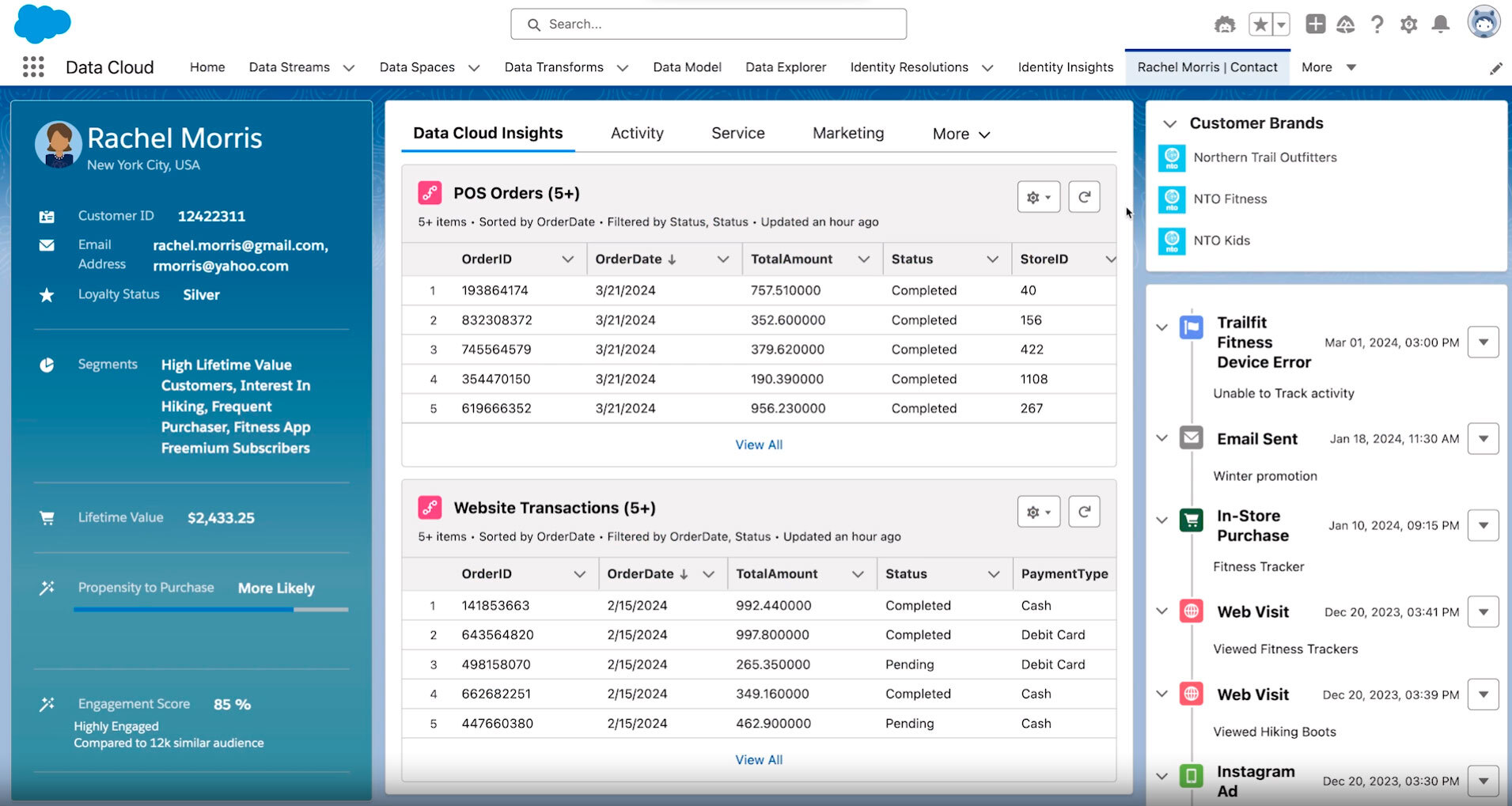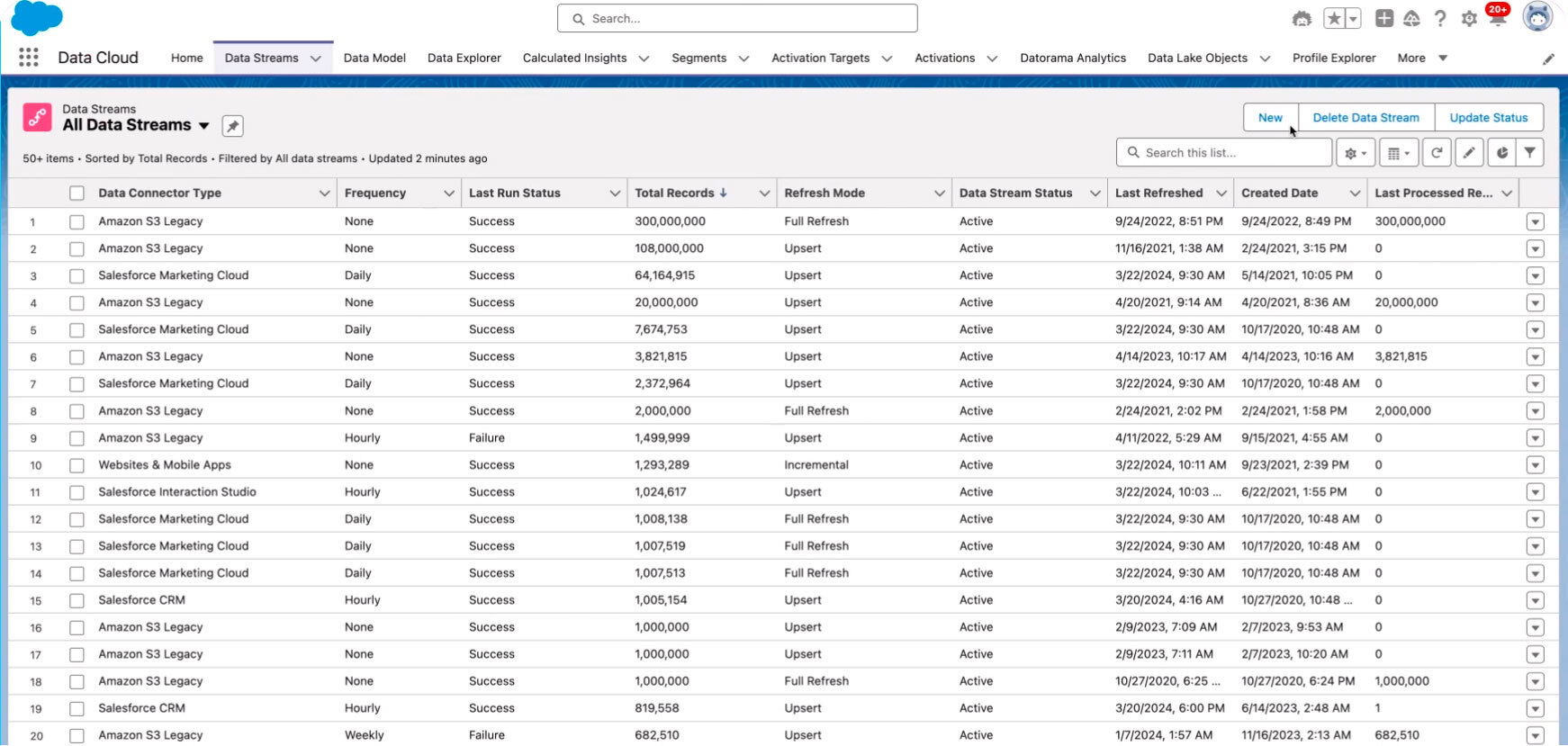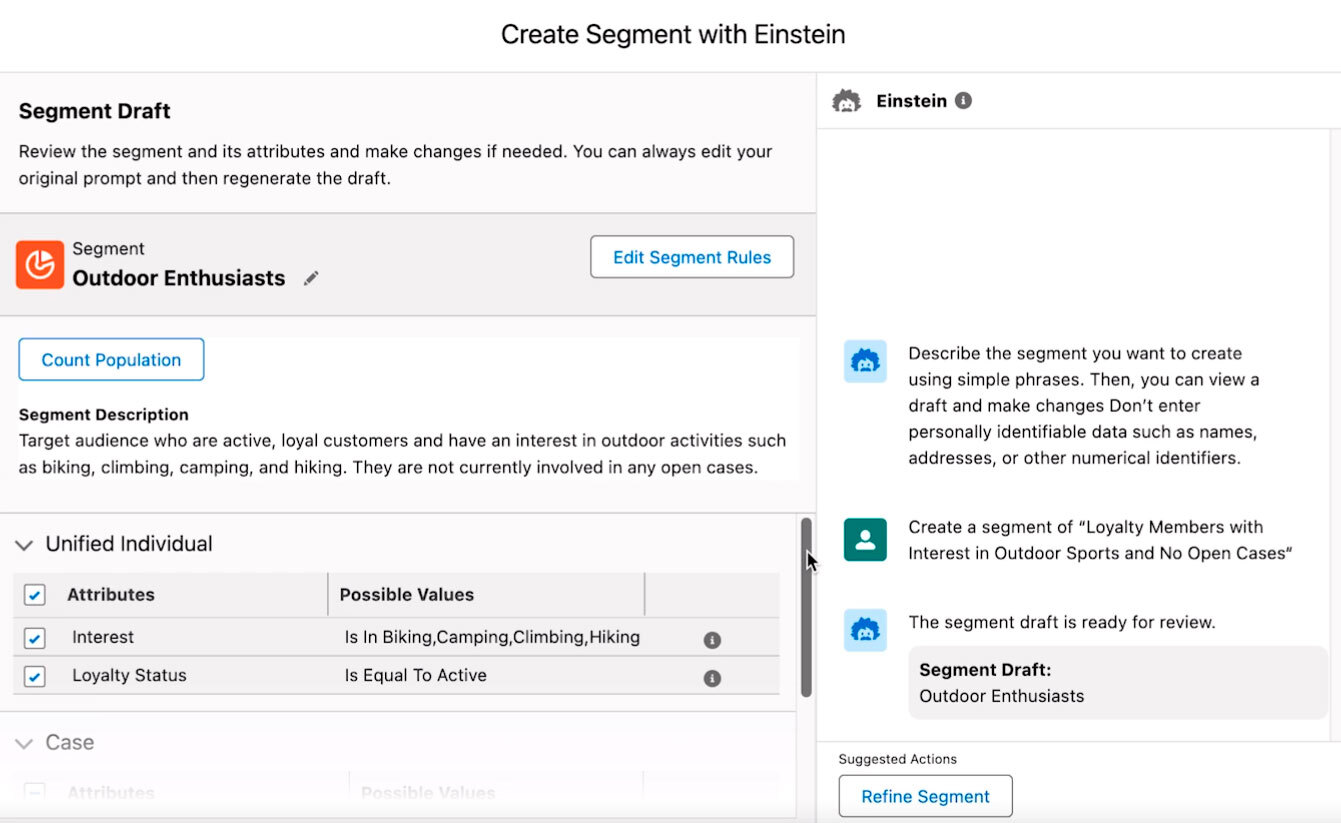Recently, Gartner named Salesforce a leader in customer data platforms (CDP) in 2024. Coincidentally, Salesforce Data Cloud is currently the flagship product in this field. Data Cloud is a data platform, whose goal is not only to centralize the enterprise database but to unlock it for maximum utilization. Integrated into the Einstein Platform, it captures and unifies all types of customer data from various sources, including native connectivity to Salesforce applications, pre-designed integrations with cloud storage like Amazon S3, and the ability to connect to any system with MuleSoft. Data Cloud breaks down barriers between marketing specialists and data scientists in this regard, aiming to optimize and upgrade the customer journey to a superior experience. Let’s delve deeper into the applications of Data Cloud for marketing.
What is Data Cloud for Marketing?
Data Cloud is a massive-scale data platform, specially created for managing customer relationships. It is natively integrated into Salesforce as part of the Einstein 1 Platform and is the evolution of the customer data platform (CDP) (formerly Salesforce Genie). It channels vast amounts of dynamic customer data from various sources in real time, integrating them under a single identity to provide a unified view of each customer, forming the foundation of Customer 360. This allows companies to create connected experiences and relevant communications with customers.
Historically, customer data platforms (CDPs) have been tools that provide marketers with a comprehensive view of isolated data. With Data Cloud for Marketing, these possibilities are significantly enhanced. Imagine a database formed from all the touchpoints where customers interact. Now imagine that, as a marketing specialist, you have access to all that information in one place and in real time. With a unified profile, it’s possible to go further in serving your customers.

It’s worth noting that this solution is not only beneficial for the marketing department, Data Cloud optimizes the work of all departments within a company by providing them with comprehensive customer information and making it easier for them to work with it. Additionally, your business will have the ability to make sense of its data, regardless of its origin channels. Furthermore, it drives experiences throughout the entire customer journey, from marketing to sales, through service, commerce, and much more. Likewise, it allows you to connect with other platforms that also interact with the data, such as Tableau, and MuleSoft, among others.
Key Uses of Data Cloud for Marketing
Data Cloud is an extremely useful tool for marketing professionals. It transcends traditional use cases and contributes to generating a highly personalized user experience. Among its most notable functionalities are:
Data Connection, Centralization, and Mapping
Imagine an immense scenario filled with isolated points, where each point is important data from many customers. With Data Cloud, marketing specialists can connect these points to identify each customer, thus building a unified profile of them. There’s no need to employ complicated procedures for this, just click and drag objects to work with the data model on the platform. Using zero-copy integrations or pre-designed connectors, data from your company that resides in other platforms (such as Snowflake, AWS, or Google BigQuery) can be easily extracted and combined in one place.

Data Harmonization
As a native solution, Data Cloud integrates all data into Salesforce’s metadata model. This enables the utilization of this data in Salesforce applications like Marketing Cloud or Service Cloud. Data harmonization in Data Cloud is a straightforward process that can be completed with just a few clicks or pre-configured data packages.
Segmentation and Creation of More Specific Audiences
The data segmentation and audience creation process is significantly enhanced with Data Cloud functionalities for marketing. Specialists no longer require programming expertise, as they can create audiences using a no-code creator and through a user-friendly interface powered by artificial intelligence (AI). By using specific insights and filters, smarter, more precise, and cascading segmentation becomes achievable. Likewise, professionals in this field can reach their customers through their favorite channels, thus avoiding excessive marketing.

Data Activation from Anywhere
Data Cloud makes the process of utilizing or “activating” data to create business processes and automations very easy. Your marketing specialists can activate Data Cloud-driven experiences practically in any working environment, whether it’s within Salesforce’s applications or on external platforms. For example, in advertising platforms.
Furthermore, Data Cloud’s data activation also covers actions for workflow automation. For example, to inform the Einstein Next Best Action engine.
Employment of Generative AI
Generative AI also operates within Data Cloud for Marketing, enhancing its capabilities. With this technology, your marketing specialists can quickly transform the customer information they have into functional segments. This makes it possible to help expand their campaigns and make them more impactful, connecting new customers with their high-value segments. Additionally, AI can generate personalized recommendations based on each customer’s comprehensive profile.
Benefits of Salesforce Data Cloud for Marketing
The capabilities of Data Cloud are highly beneficial for work teams, especially for marketing specialists. Among the benefits we can highlight:
- Unifies customer data from different sources into an integrated profile. Visualize each customer as a unified entity, without fragmenting preferences or behaviors, allowing for better experience management. Companies can offer a more robust service by having all the necessary information for each user.
- Allows handling massive amounts of data in real time. Data Cloud captures data from all accessible places and channels, covering a large volume in just milliseconds. This constantly updates the information, allowing your marketing specialists to act promptly and timely.
- Incorporates trust standards. Your customers prefer to receive suggestions based on their preferences. But they are the ones who decide what information to share with your company. This is extremely important because the loss of customer trust is fatal for any business. In this sense, your company must respect and effectively manage customer communication preferences and privacy. To achieve this, Data Cloud incorporates trust standards specially focused on security, governance, and privacy compliance. This helps ensure that your company knows what customer data it has, what it can use, and how they prefer to be contacted.
- Enables creating a high level of personalization. A cohesive and enriched customer profile is created by effectively integrating data from various sources. With this, it’s possible to achieve high levels of personalization that lead to a qualitatively superior customer experience.
- Allows direct access to data without making copies or duplications. Data Cloud’s zero-copy architecture allows for data cleaning and handling. These can be accessed upon request without duplication or storage in Salesforce, enhancing your team’s efficiency by reducing processing time.
In summary, Data Cloud for Marketing represents a significant advancement in data management to drive business success. Centralizing customer data, it facilitates the creation of stronger and more personalized relationships with them, allowing organizations to make the most of every interaction. Capable of providing access to real-time data, precise segmentation, and multichannel data activation, Data Cloud stands as an indispensable tool for marketing specialists. If you want to delve into this Salesforce solution and take advantage of its benefits, don’t hesitate to contact the SkyPlanner team at hello@theskyplanner.com. We’re delighted to assist you.



